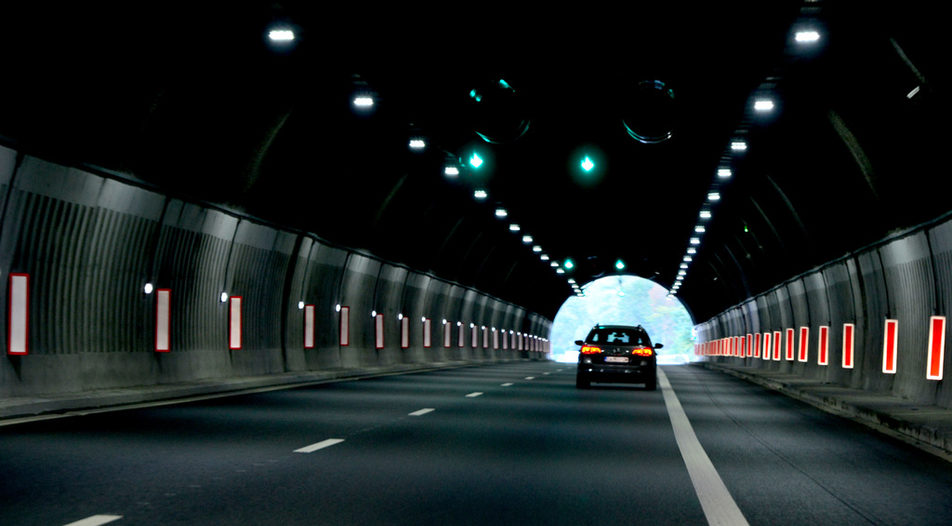The government's Road Infrastructure Agency (RIA) was supposed to open a new, clean chapter right from the start of 2019. On January 1, RIA introduced a new system of electronic payment for time travelled on the country's roads, replacing the old windshield stickers, or vignettes. In August, a new electronic road toll system for heavy vehicles based on distance travelled is set to become operational. At the same time, RIA is ready to splash out close to one billion euro on constructing new highways.
Several major scandals, however, have overshadowed the good news.
First, the introduction of the new electronic vignette system wreaked chaos because its rollout was severely underprepared. The scandal highlighted the role of Kapsch, the Austrian company that had won the tender for developing the e-vignette and tolling system for 180 million levs. It turned out that not only was the company unable to start the system properly, but it had also signed an annex to its contract, reducing the agreed amount of work without changing the overall price. Second, the government chose a non-competitive procedure for the construction of a 134 km stretch of Hemus highway (connecting the capital Sofia to the Black Sea city of Varna) worth 1.34 billion levs (685 million euro). The contractor will be the state-owned highway operator Avtomagistrali which will then subcontract works without calling public tenders.
A very special e-vignette
The e-vignette system was supposed to have become operational as of January 1, while the old pre-bought sticker vignettes could be converted online into e-vignettes as early as December. However, it turned out that few of the payment methods worked. Neither the special app for mobile devices, nor the online terminals at gas stations, worked properly most of the time.
To add to the chaos, the conversion of sticker vignettes into electronic ones was exposed to scams. About a third of all converted vignettes were actually fake. There was no customer service to help distressed drivers and the entire process was behind schedule. The mismanagement led to the resignations of several RIA executives, including the head of the management board, Svetoslav Glosov.
These were just a few of the issues related to software or organization. However, some even more disturbing facts emerged.
RIA was supposed to announce a public tender for the vignette's national service provider (NSP). The NSP distributes the vignettes and receives commission on each sold vignette.
The only company which currently has such a contract with the road agency is Intelligent Traffic Systems and it is not because no one else has shown interest. To put it simply, no one else was given a fair chance.
First of all, RIA's management officially decided that Intelligent Traffic Systems will be registered as NSP on December 18, while the terms and criteria for other applicants were published the next day. Second, the technical assignment included a definition of NSP, which said that the NSP should not be selling e-vignettes online. Surprisingly, this is exactly what Intelligent Traffic Systems is doing.
The company has developed its own website - vinetki.bg, which served as an alternative to Kapsch's web page - the state's official platform for selling e-vignettes. The chaos with the latter actually led to the former's success. Stanislava Arnaudova, who owns 80% of Intelligent Traffic Systems, claims that they have 60% market share. Of course, it shouldn't be a surprise that Ms Arnaudova had a longstanding business relationship with Kapsch's Bulgarian representative. It seems that they have found a way to make an additional profit at the expense of RIA.
An annex worth millions
Kapsch won the contract for developing the electronic tolling system back in 2017 with a bid of almost 180 million levs, including VAT - lower than the prices offered by the other competitors.
However, an annex to the contract with RIA signed at the end of September 2018 freed the company from performing certain activities, while the price remained the same. For example, under the original contract, the existing 125 control points located in populated areas had to be changed, although no toll fees are charged in towns or villages. The annex removed this obligation from Kapsch's to-do list. Through this annexe alone Kapsch has saved 10 million levs.
However, according to public procurement law in Bulgaria, changes in contracts that are already signed can occur only if the authority could not have foreseen certain circumstances. Yet, obviously, this does not apply in the current case as the changes are both significant and could have been predicted.
A highway for favourite players
Last but not least, in December the government found a solution to a thorny issue of recent years - how to improve the process of public procurements mired in lawsuits and delays. The government's solution was to circumvent the entire process.
The Hemus highway is the testing ground for the new approach. The project has been a hot potato for the two governments of prime minister Boyko Borissov over the past five years. While southern Bulgaria has three highways - Trakia (connecting Sofia to Burgas, on the Black Sea coast), Maritza (branching out from Trakia to the border with Turkey) and Struma, which is still under construction and will connect Sofia to Kulata checkpoint on the border with Greece, northern Bulgaria is economically disadvantaged with less than 200 km, or about half of Hemus highway, in operation.
The Hemus highway project is a major vote winner and Mr Borissov is in a hurry ahead of the upcoming elections for European Parliament and local governments in 2019. Hemus does not qualify for financing from EU funds, because it does not connect Bulgaria to the other EU Member States. For a number of years financing for its construction was planned to come from the expected windfall of toll fees. With that revenue yet to come, the government budget surplus became the long-awaited source of financing in December when the government transferred 1.34 billion levs to the account of Avtomagistrali.
The company regularly wins RIA tenders for repairs of the existing highways and reassigns almost all the works to private construction companies through opaque procedures. It simply has no capacity to design and build the entire 134 km-long highway stretch. The executive director of the company, Stoyan Belichev, has said that it would have to hire an additional 500 people.
RIA's contract with Avtomagistrali was published weeks after it had been signed - even though it involves a huge amount of public funds. The decision to award the construction of Hemus to Avtomagistrali came suddenly, with no previous public discussion, but it had been in the making for some time. It emerged that in November 2018 the company had signed some very vaguely worded contracts with eight construction firms. Some of them are related to the renting of machines but they also include clauses for providing Avtomagistrali with manpower and bearing responsibility for any construction works executed with these machines. In other words, the content of the agreements shows that they actually refer to road construction, not just renting machines.
According to a lawyer consulted by Capital, if these private companies are used to build Hemus, there will be an obvious violation of public procurement legislation. The lawyer said that such a big project can be of interest to European firms as well, so the selection of Avtomagistrali hinders free competition - a main principle in the EU. Not to mention that in such "in-house" scenarios Avtomagistrali is not allowed to use subcontractors, but through the abovementioned agreements, it will be doing so.
Three years ago, the European Anti-Fraud Office (OLAF) sent documents on suspected corruption practices in RIA to the Bulgarian Prosecutor's Office. OLAF's conclusion was that RIA failed to "meet basic expectations". The recent developments at RIA will hardly change the assessment of the EU's anti-fraud agency. RIA's actions are yet further evidence that public procurement in Bulgaria is only a façade. This time, however, the government doesn't even bother to feign decency while gaming the rules.
[U1]Note the Bulgarian here
The government's Road Infrastructure Agency (RIA) was supposed to open a new, clean chapter right from the start of 2019. On January 1, RIA introduced a new system of electronic payment for time travelled on the country's roads, replacing the old windshield stickers, or vignettes. In August, a new electronic road toll system for heavy vehicles based on distance travelled is set to become operational. At the same time, RIA is ready to splash out close to one billion euro on constructing new highways.
Several major scandals, however, have overshadowed the good news.
Read More












